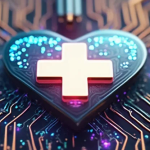In recent years, there has been a growing emphasis on prioritizing our health, which is classically defined not just by the absence of disease or infirmity but as a state of complete physical, mental, and social well-being.
Has it been on our minds before? Maybe not, but now many of us and organizations are giving more importance to aspects like mental health, remote work, and flexible living arrangements.
The WHO’s definition of health, cited at the beginning of the article, leads us directly to the practice of “wellness” (which derives from wellbeing + fitness, fun fact!). At Globant, we refer to it as a practice because if there is something that distinguishes it from the WHO’s definition, it is that wellness implies an active search for lifestyles, activities, and choices that lead us to a state of holistic health. The impact that wellness can have on us is significant; it is enough to browse the charts of the report elaborated by The Irrational Labs, Amplify Health, and Benz to understand this (Wansink et al.) or even to understand the eight risks or behaviors (smoking, physical inactivity, insufficient sleep, etc.) contribute to the generation of 15 different chronic diseases that, in turn, represent 80% of healthcare costs.
We know changing our habits is a challenging task. Could technology help streamline the process? Draw your conclusions after our thoughts on the matter.
Behavioral sciences and technology are a winning team for improving wellness
Behavioral sciences study human behavior and how social, cognitive, and emotional factors influence it. In that way, they can be used to understand some factors influencing health habits, such as exercise, nutrition, sleep, and stress management. They can also be used to evaluate the effectiveness of wellness programs and interventions. For example, to assess the impact of a wellness program on behavior change and health outcomes.
The fusion of behavioral sciences and technology yields a powerful synergy, empowering individuals with customized tools, insightful knowledge, and motivational impetus to actualize positive life transformations. This innovative approach further enables the creation of bespoke wellness interventions, attuned to each person’s unique needs, to catalyze attaining their wellness aspirations.
For example, technology can provide real-time data about health, such as how many steps a person has taken, their vital signs, and how long they’ve slept. This increased awareness can help individuals better understand their health and, more importantly, make informed decisions. Also, it can provide personalized recommendations and interventions based on the individual’s unique health data, preferences, and goals. Furthermore, having all this information at hand makes it possible to get the most out of telemedicine and remote monitoring since the person can seamlessly provide their healthcare professionals with valuable data that otherwise would have required an in-person visit to be exposed.
Another excellent example of the power of combining technology with behavioral sciences is that they can facilitate programs to help abandon bad habits, such as smoking, showing a remarkable success rate. In Globant, this is one of our key Be Kind to Yourself programs: “Stop smoking to start breathing,” a program that combines virtual reality, accompanied by an app, a log book, audio and video playlists, and one-on-one health coaching sessions.
Innovation in wellness interventions lies at the intersection of behavioral sciences and technology. By harnessing this interdisciplinary approach, we can empower individuals to cultivate positive health habits while receiving personalized support catering to their unique needs. The result is a revolution in wellness interventions, where individuals can unlock their full potential to achieve their health goals and live their best lives. “That’s why we strongly believe that real-time health data, personalized recommendations, telemedicine, and online communities are some strategies that can contribute to a more holistic and comprehensive approach to healthcare. With the power of these tools and approaches, we can move a step towards a healthier and more connected society,” stated Lucas Najún Dubos, Medical Doctor & Healthcare & Life Sciences Globant Partner
The intersection of behavioral sciences, wellness, and digital technology
By combining insights from psychology, neuroscience, and behavioral economics with the power of digital technology, wellness technology companies can now create products and services that engage patients in their healthcare like never before.
The healthcare industry has long grappled with the problem of patient engagement, but a glimmer of hope has emerged in the form of gamification. This approach involves infusing game elements and digital game design techniques into real-world problems like healthcare issues. By stimulating the brain’s reward center, gamification successfully captivates patients, compelling them to take a more active role in their healthcare. This enhances patient engagement and conserves time and resources for healthcare providers. The potential of gamification in transforming patient engagement can truly be a game-changer.
One example of wellness gamification is a video game developed by Akili Interactive Labs for pediatric ADHD treatment. The action video games are purposefully designed to elicit specific sensory stimuli and pose simultaneous motor challenges to engage and optimize neural systems in the brain that govern attentional control. The company reports that
73% of children reported improved attention(Kollins et al, Lancet Digital Health 2020).
Another bioresponsive game, Mightier, developed and tested at Boston Children’s Hospital and Harvard Medical School, helps kids deal with behavioral and emotional challenges by creating real-time awareness about their heart rates. The game adapts to their heart rate, becoming more challenging as it increases. This encourages them to learn to regulate their heart rate and earn game rewards by practicing calming techniques. Clinical trials show that Mightier reduces parent stress by 19%, decreases oppositional behaviors by 40%, and lowers outbursts by 62% after 12 weeks.
At Globant, we firmly believe in the power of technology and behavioral sciences to transform our health habits. To this end, we partnered with P.volve to develop a fitness platform that provides personalized functionality and adaptive workouts that adjust to individualities, such as a woman’s health and menstrual cycle.
Another example of Globant’s work in this area is BeHealthy. Developed with Apple, the program leverages wearables and mobile phone data to recognize and reward physical activity. BeHealthy’s dynamic, gamified algorithms, personalized targets, and combination of short and long-term goals have proven very effective at driving long-term changes in behavior, including a 3x average increase in active days per month after one year of participation. BeHealthy is being leveraged by an array of companies to increase employee activity levels and engagement with wellness-minded customers.
We are committed to harnessing this innovative intersection to design solutions that improve individuals’ health and foster a healthier and more connected society. In this digital age, we recognize the potential of technology to revolutionize healthcare. As we continue to navigate the post-pandemic era, we are committed to exploring new ways to leverage technology and behavioral sciences to enhance wellness.
We empower individuals to take control of their health, inspire them to make positive lifestyle changes and support them every step of the way. Whether through real-time health data, personalized recommendations, telemedicine, or online communities, we strive to create a more holistic and comprehensive approach to healthcare.
Globant aims to bridge the gap to help organizations fulfill their mission of delivering innovation and services faster and more efficiently, improving value for individuals, and contributing to a healthier world and better health outcomes for both individuals and populations. This is something that we not only believe in but also put into practice. We know that to reinvent the future of business, we need to prioritize people’s well-being and specialize in doing it with technology. For instance, we created “My Well-being,” an assessment that provides the results of a self-check regarding employee’s mental, physical, and social well-being, and it will give Globers suggestions to improve their current status.
Contact our Healthcare & Life Sciences Reinvention Studio to learn more about our work and solutions in these areas. We look forward to starting this exciting journey together.






